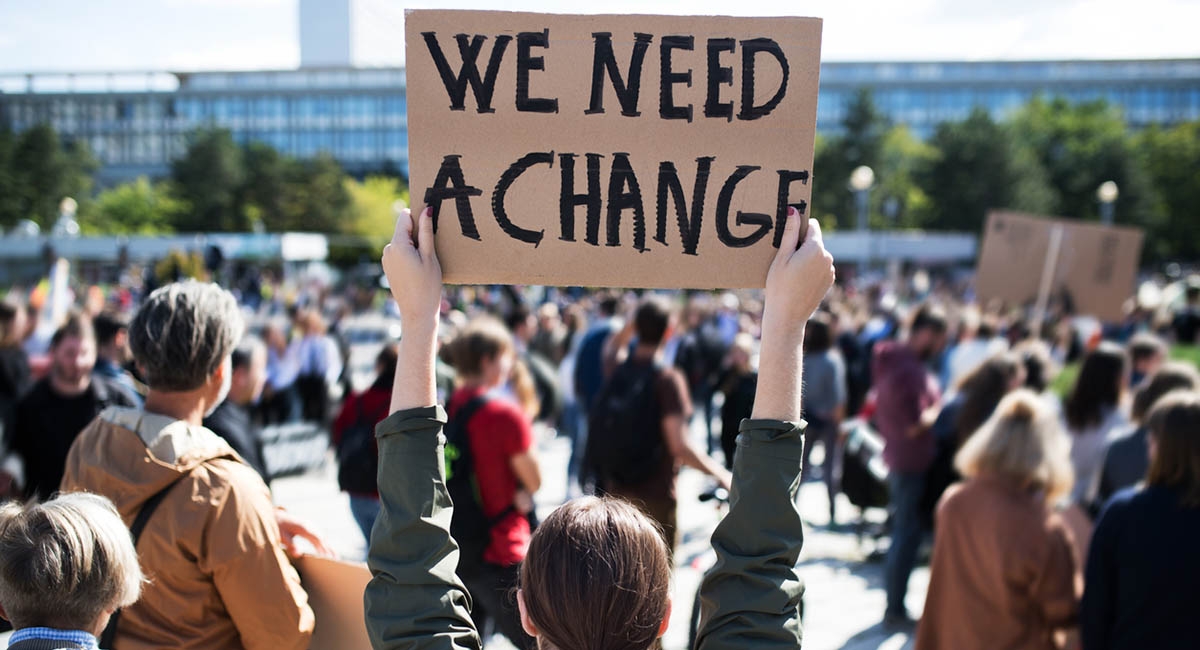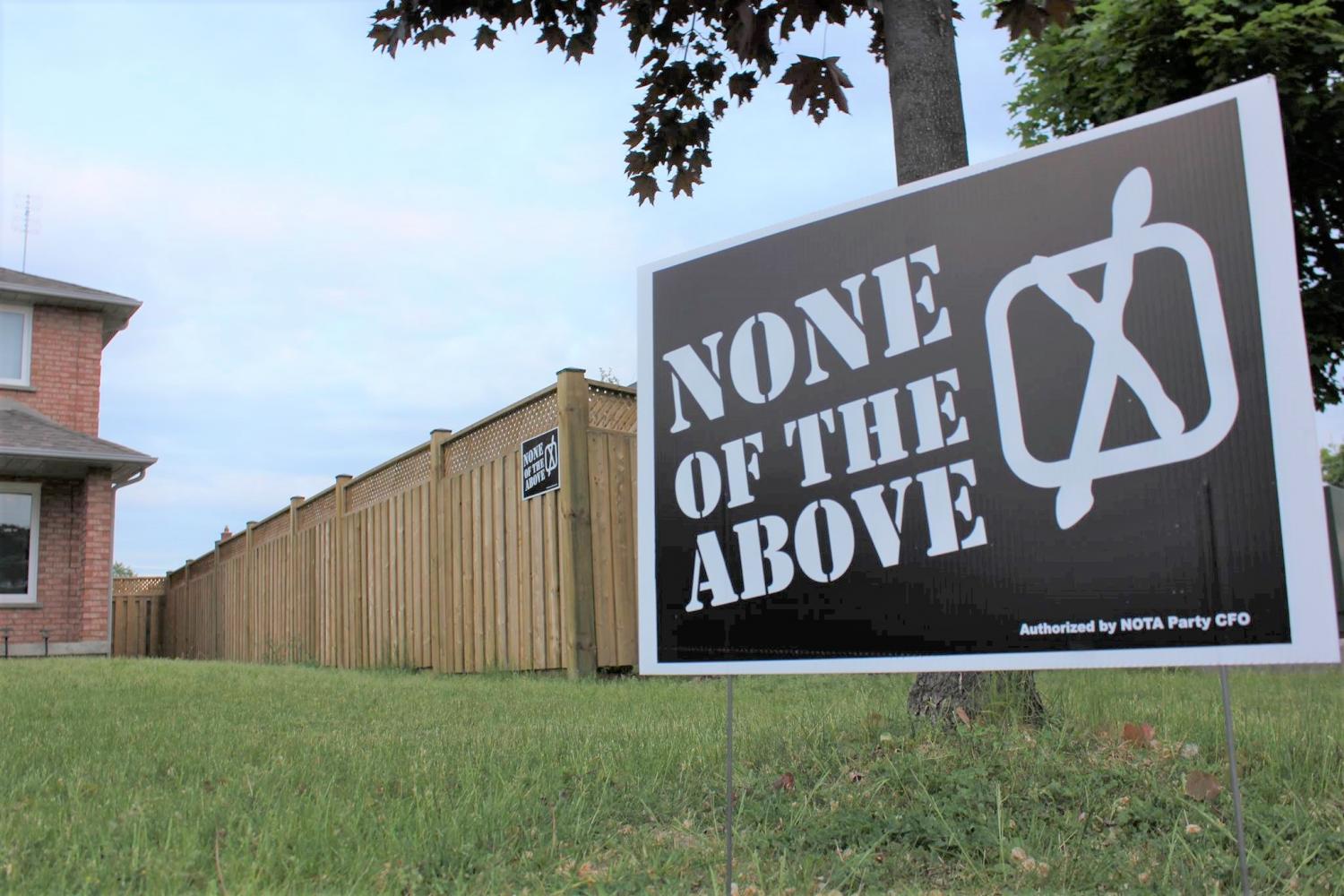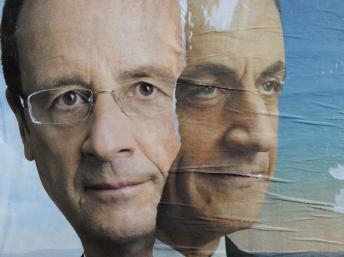
An immodest proposal for change to climate change
By Larry McCloskey
Jonathan Swift proposed that poor Irish parents alleviate poverty by selling their babies to the aristocracy as a delicatessen in, “A Modest Proposal.” Just to be clear in these humourless politically polarized times, he was kidding; that is, his 1729 Juvenalian straight-faced satire was meant to provoke rather than be believed. Today, I fear we are closer to consuming our children than were the aristocracy of poor Irish babies of the Swiftian era.
School curriculum increasingly neglects the notion of play—too risky—with kids being co-opted into worrying about ideological causes instead. Kids need to learn critical and not ideological thinking, with the requisite time to work out their own values and how to apply them in our complex world. And the purveyors of the right causes need to understand that ideology is borrowed thinking, is antithetical to critical thinking. The difference is not theoretical. Kids who are not allowed to be goofy and carefree are exhibiting worrying symptoms. In the safest, most affluent time and place in the world, young people are experiencing a mental health crisis unprecedented in human history.
All of which has been exacerbated by a Covid crisis that lingers like an unwanted house guest. And then there is the mother-load anxiety provoking issue of climate change with Greta Thunberg as poster child for the skewered notion of childhood as cause celeb rather than a healthy, if temporary, reprieve from the serious and humourless blight of adulthood.
This astonishingly rapid and disturbing shift in thinking from carefree to fear based childhood experience was brought home to me this week during lunch with my three adult daughters, two of whom have daughters. My daughters are smart and reasonable without propensity for histrionics about ideological causes, and yet, they are deeply concerned about climate change and fearful of the world their daughters will inherit.
So, I listened to their collective and uncharacteristic sense of hopelessness on this insidious issue. And it occurred to me that whatever the realities of climate change, there has never been an issue confronting the world that has been more thoroughly saturated in hopelessness. The use of fear for political gain seems to be the new normal. Political elites essentially tell us we have to destroy our economies to combat climate change even as we are told that it is too late to save the world, with contradictory messages often from the same source (ie. Liberal Party declaration of end of times climate crisis, followed by announcement that Canada will be emissions free by 2050 without believable plan on how that can be achieved).
Clearly, the ruling party has no idea what it is doing on the climate change issue. For example, even though the Liberals would like us to believe that they, and only they can save the planet, much of the world’s emissions come from a relatively small number of countries: in particular China, United States, India, Russia and Brazil (Japan is also in the mix, holding either 5th or 6th spot). China has the highest carbon emissions, by far. Though we are a huge and cold country, Canada’s emission total is 1.6 per cent. I am not going to say only 1.6 per cent or that a comparatively small percentage means we should not do all we can to reduce greenhouse gas. But what is obvious to most Canadians is that the world is not watching our climate progress for how to conduct itself. Liberal policy is not going to save the world. Still, if we are strategic, realistic and audacious—and therefore far removed from anything the Liberal party could ever come up with—we could leverage our actual position in the world and take a leadership role which might resonate with Canadians and impact the world. Suffice to say, today’s Liberal party is far removed from its diplomacy pinnacle of decades past.
Consider this—in 1957 Lester B. Pearson won the Nobel Peace Prize for having mediated and brokered a deal during the Suez crisis that resulted in mobilizing 6000 peace-keepers from 10 countries under the command of Canadian General E.L.M. Burns. That moment in history is often cited as Canada’s gold standard image of itself as a middle power influencer, mediator, deal-maker, call it what you will, but our efforts were then outcome driven and common-sensical, rather than our modern self-important fictitious peacock strutting faux answer to world problems.
In facing our actual position in the world, in leveraging our strength rather than projecting a lie, we could emulate the late great Lester, punch above our international weight and make a significant contribution to lowering greenhouse gas far in excess of our 1.6 per cent. What, not possible, you say? Read on.
The following is a workable, audacious and hopeful as hell immodest proposal that is made for a modest non-virtue-signalling Canada, as follows:
- Let’s stop the blame and shame. It is not true that the purveyors of climate terror care more than the Tim Horton’s crowd. Mostly, the bewildered Tim’s folk can be moved to support an audacious plan, including making personal sacrifice, if it makes sense—and for the plan to make sense it has to be achievable, transparent, honestly evaluated, and not tank the economy.
- Same for most of the other middle and lower ranking countries with middle and low emissions. They care, but as our well-intended Greta attests to, most of their politicians have no idea what to substantially do, which is why they talk in platitudes.
- Strength in numbers. First of all we need to be concerned but not obsess about our emissions. That is, let’s aim higher, with more ambition for greater change but not premise actual change on fear based tactics. Our kids and their moms deserve better. Canada could, should, and by the time Canadians have had it with the ruling party plans, we must create a new Trade Coalition: that is, rather than ring our hands at the inaction of the big emitters, let’s provide meaningful incentives for them to change based on our trade. Our Trade Coalition would create a Trade Standard that precedes discussion for entering into any trading agreements, first between members of the Coalition, leading to negotiations with the big emitting cheeses. This could take some time, but clearly people increasingly want to do something substantial, and increasingly are expecting their leaders to do more than pontificate. If you are one of the high emitting countries and you have to change in order to access the markets of, say, a 30 or 50 country Trade Coalition, rather than protest to the UN, you might just be motivated to change before the competition does.
- So rather than have our feminist Prime Minister arbitrarily lecturing and bewildering China about his kitschy identity politics pet projects, we might end up with a grown up leader who big emitters actually listen to, or else. The ‘or else’ exists in the fact that all the signatories to our Coalition only enter into trade agreements with those willing to adhere to a Trade Standard we are all committed to. If the collectively adhered to standard is non-negotiable, rather than aspirational, progress follows.
- So, how does meeting the Trade Standard of our Trading Coalition compel big emitters to pay attention to little old countries like Canada? Well, China today is a climate change contradiction; it is by far the worst emitter of carbon (more than US and EU combined), and yet it is heavily invested in green technologies. So, the Trade Standard might begin with the Coalition refusing to trade with countries that are still building power plants fuelled by coal, which China still builds with shocking frequency (hey, if you are surprised it gets worse: the Paris Accords allows China to increase their coal based carbon emissions for decades). Clearly, something else is needed. Faced with our Trading Coalition, China and others would either lose substantial trade or else have to stop building coal plants. Eventually the Standard would evolve to the point that our Coalition only trades with countries that have eliminated coal burning plants altogether. There are many realistic options that could comprise the evolving Standards of our Coalition, but to be clear, if most countries could be incentivized to meet this one initial feature of our Standard, it would change the world, and Canada’s place in it. And most notable, we will have defined our own path, will be leading others in common cause, will be punching above our diplomatic weight in the world once again. Most of all, our international reputation will no longer be a product of our leader’s sock collection or misappropriated costumes worn during diplomatic visits.
- The coalition might assist and provide incentives for countries attempting to meet the standard (i.e. small, poor countries) from a modest central fund, but does not pay for change. (i.e. there are new, small, powerful and highly efficient nuclear technologies that can more than make up for present coal dependency).
- The coalition never becomes associated with the United Nations, because the goal is to reduce emissions, not distract, water down or end progress.
Integral to this plan is that it not become an aspirational exercise. This exercise cannot be a disconnect between the knowing public and the politicians who know so much more. The federal carbon tax has divided Canadians and alienated people because those who know better forgot the most essential aspect of leadership: when you draw a picture for people, they have to see themselves in it. And when they can see link between what they give and what the results are, they will admire and commit to the picture they have become a part of.
Including the pain. Our Trade Standard would require that we no longer trade with countries we have traded with substantially for decades. We will have to pay more for some goods and we will certainly sacrifice some consumer choice. For example, Costco shopping could take a serious hit. But one unforeseen consequence of more cost and limited choice could be a revival of some of our manufacturing sector lost to globalization in recent decades. People can take the pain when they can see the gain.
Feeding our children to the aristocracy of ideological causes is not a modest proposal. The climate change message children get is often confusing and contradictory: its too late to save the planet, followed by we have to forfeit all our wealth and western ways for the sake off the planet. It’s no coincidence that dystopian film and fiction rules today. People need to channel their anxiety somewhere, but oddly when the theatre lights go back on people realize that their hope for the actual world is no stronger than the fictional rendering of doom on the screen. We don’t need to push our kids into curriculum sanctioned ideological causes before they can examine for themselves what they believe in, what a dispassionate study of the facts tells them, and most of all, what they actually hope for.
Endnote: In May, 1940, Winston Churchill became Prime Minister of Britain at its most desperate moment in history. Britain was the last defence against complete German hegemony, and was no match for the Nazis who had swallowed up Europe. Churchill gave three memorable speeches in the House of Commons in the weeks that followed which demonstrate how he was able to draw a picture Britons were able to see themselves in. On May 13th, “I have nothing to offer but blood, toil, tears, and sweat,” followed by, “We shall fight on the beaches,” speech June 4th, and “This was their finest hour,” on June 18th. In the face of certain defeat, Britain never did surrender and, as a consequence, won the war. Based on logistics, resources and conventional analysis, Britain should not have won the war, should have been easily defeated save one intangible factor: hope. Churchill literally galvanized a nearly defeated people against the greatest war machine and most evil tyrant the world had ever seen, by defining, articulating and making people believe in hope when nothing else remained.
I don’t pretend that my plan is Churchillian or equal to Lester’s Suez success. Still, it may be better than anything else you will hear from any of the rival parties on climate change during this election (though I would say the Conservative plan is the most realistic and hopeful). Unfortunately, our political betters are vying for a very low, expensive and weirdly, unachievable bar rather than galvanizing Canadians into a Trading Coalition that presents our collective higher selves to the world. Canada is not back, hasn’t been back these past six years, but let’s hope the outcome of this election is that Canadians demand to be back with a vengeance.
Larry McCloskey is a consultant and writer whose newest book, Inarticulate Speech of the Heart won a national Word Guild award as a manuscript.
PHOTO: ISTOCK









